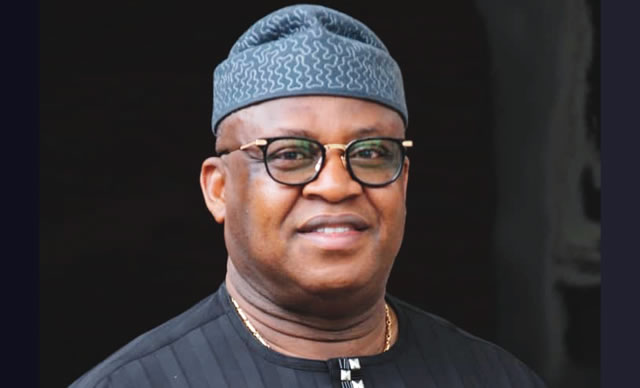Chief Dan Orbih, the Peoples Democratic Party’s (PDP) National Vice Chairman for the South-South region, has ignited a discussion about the party’s internal struggles, asserting that the former Rivers State Governor and current FCT Minister, Nyesom Wike, is not the root of the PDP’s problems. Instead, Orbih points fingers at those within the party who persistently seek the presidential nomination without adhering to the established guidelines and regulations enshrined in the PDP’s constitution. This contention underscores a deeper concern within the party about the ambition of certain individuals overriding the collective good and adherence to internal democratic processes.
Orbih’s pronouncements coincided with a significant gesture towards rebuilding the PDP’s presence in Edo State. He donated a new secretariat to the party, a symbolic move aimed at revitalizing the party’s operations after a period of uncertainty and displacement. The previous secretariat had been lost, leaving the Edo PDP without a central operational hub. This donation not only provides a physical space for the party to function but also serves as a rallying point for members, demonstrating a commitment to rebuilding and strengthening the party’s presence in the state. Orbih’s actions highlight the importance of tangible investments in party infrastructure and the need for strong leadership willing to contribute resources to maintain a robust political presence.
The handover ceremony of the new secretariat provided Orbih with a platform to address several critical issues facing the PDP. He called upon the Acting National Chairman, Ambassador Iliya Damagun, to initiate congresses that would usher in a new wave of leadership. This call for fresh blood signals a desire for change within the party’s ranks, suggesting a need to move beyond existing factionalism and internal disputes. Orbih believes that new leaders, untainted by past controversies and committed to the party’s constitution, are crucial to restoring the PDP’s former glory and preparing for future electoral battles. He highlighted the need for unity and cooperation among sincere party members, emphasizing that internal squabbles only serve to weaken the party’s overall standing.
Orbih’s critique of the Edo PDP Caretaker Committee added another layer to the ongoing internal dynamics within the party. He questioned the legitimacy and authority of the committee, asserting that its members were operating unconstitutionally. This challenge to the committee’s authority underscores the complexities of power struggles within the PDP and raises questions about the adherence to internal rules and procedures. Orbih’s declaration that statements from the committee would no longer be recognized further emphasizes his intent to reshape the party’s structure in Edo State and consolidate his influence over the party’s operations in the region. This move underscores the ongoing efforts to establish clear lines of authority and ensure that decisions are made by recognized party officials.
Despite his critical assessment of the current state of the PDP, Orbih acknowledged the positive contributions of Governor Godwin Obaseki. He commended the Governor for his humility and respect for traditional institutions within the state. This acknowledgement, while seemingly tangential to the broader discussion of party politics, serves to highlight Orbih’s nuanced approach to leadership. He demonstrates a willingness to recognize positive contributions even from those outside his immediate political circle, suggesting a pragmatic understanding of the need for collaboration and mutual respect in the broader political landscape.
The donation of the new secretariat, coupled with Orbih’s pointed remarks about internal party dynamics and the need for new leadership, signifies a pivotal moment for the PDP in Edo State. This move, initiated by a prominent figure within the party, represents an effort to revitalize the party’s grassroots presence and re-establish a strong foundation for future political campaigns. Orbih’s actions and pronouncements suggest a broader strategy to reshape the party’s direction, focusing on adherence to internal regulations, the recruitment of fresh leadership, and a unified approach to future electoral contests. His emphasis on constitutional adherence and the need for legitimate leadership underscores a desire to move beyond internal conflicts and project an image of stability and unity.














